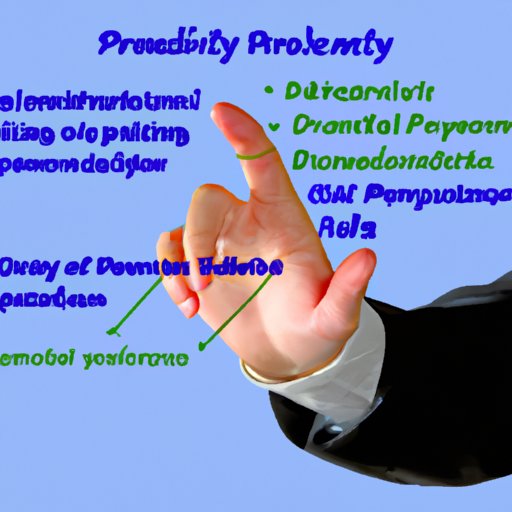What Influences Personality Development?
Personality development is a complex process that is influenced by a wide variety of factors. From family background to peer groups, biology to experiences, there are many different elements that shape who a person is and how they behave. Understanding these different influences can offer valuable insight into how personality develops and what you can do to help shape your own personality over time.
Family Background and Upbringing
Family background and upbringing are one of the primary factors that influence personality development. This encompasses a wide range of factors including family structure, values, and parenting styles. Children learn much of their personality and behavior patterns from their parents and other family members, and these patterns can be difficult to break without conscious effort later in life. For example, children who grow up in abusive households may develop traits such as low self-esteem, shyness, or aggression.
However, not all family backgrounds result in negative personality traits. For example, children who are raised with healthy communication patterns, conflict resolution skills, and strong support and encouragement from their parents may develop traits such as assertiveness, confidence, and self-esteem. If you are struggling to overcome negative personality traits that you believe stem from your family background, it may be helpful to seek the assistance of a therapist or other mental health professional.
Biological Factors
Biological factors such as genetics and brain chemistry play a significant role in shaping personality development. Research has shown that certain genes are associated with personality traits such as introversion, extroversion, and openness to experience. Additionally, imbalances in brain chemicals such as dopamine and serotonin can also impact personality. These biological factors are largely fixed factors, but it is important to understand their role in shaping personality in order to better understand yourself and your behavior.
If you are interested in understanding your personality from a biological perspective, there are various resources that can help. Genetic testing services such as 23andMe can offer insights into your personal genetic makeup, while neuroscience research continues to explore the connection between brain chemistry and personality traits.
Cultural and Social Factors
Cultural and social factors can significantly influence personality development, particularly during childhood and adolescence. Different cultures and societies have different values and social norms, and these can impact how children learn to think, communicate, and behave. For example, cultures that emphasize individualism may produce individuals with different personality traits than cultures that emphasize collectivism.
It is important to be aware of the cultural and social factors that may be impacting your personality, particularly if you are struggling with cultural or social differences. Developing greater awareness and a better understanding of these factors can help you navigate social situations more effectively and develop a more positive sense of self.
Peer Groups
Peer groups also play a significant role in influencing personality development. During adolescence in particular, peer groups can play a critical role in shaping self-esteem, confidence, and social skills. Positive peer groups can encourage individuals to take on new challenges and build self-confidence, while negative peer groups can lead to low self-esteem, anxiety, and poor decision-making.
If you are struggling to find a positive peer group to support your personality development, consider seeking out new friends through activities or hobbies that you enjoy. Joining a club or group focused on a shared interest can be a great way to meet people who share your values and interests.
Trauma and Experiences
Trauma and significant life experiences can have a profound impact on personality development. Individuals who have experienced significant trauma may develop negative personality traits such as anxiety, fear, and avoidance. Similarly, individuals who have experienced challenging life situations such as poverty, abuse, or discrimination may develop traits such as resilience, perseverance, and a strong sense of empathy.
If you are struggling to overcome or process traumatic experiences that have impacted your personality, it may be helpful to seek the assistance of a mental health professional. Therapy can provide a safe and supportive space to explore your experiences and develop healthy coping mechanisms and behavior patterns.
Personal Choices and Habits
Personal choices and habits are the final factor that influences personality development. The lifestyle choices, daily routines, and hobbies that an individual engages in can all impact their behavior and disposition. For example, individuals who engage in regular exercise may be more likely to be extroverted and confident, while those who engage in regular meditation may be more likely to be introspective and reflective.
Developing positive habits and making healthy choices can have a significant impact on personality development. If you are interested in making positive changes to impact your personality, consider establishing a consistent daily routine, engaging in regular exercise or meditation, or developing new hobbies or interests that build healthy skills and habits.
Conclusion
Personality development is a complex and multi-faceted process that is influenced by a wide range of factors. From family background to biology, peer groups to personal choices, there are many different elements that impact how we think, feel, and behave. By understanding these different influences, individuals can become more conscious of their own behavior patterns and work to consciously shape their personality over time.
If you are interested in learning more about personality development or working to develop a stronger sense of self, consider discussing your goals with a therapist or other mental health professional. By working together, you can develop tools and strategies to support healthy behavior patterns and a stronger sense of self.
(Note: Is this article not meeting your expectations? Do you have knowledge or insights to share? Unlock new opportunities and expand your reach by joining our authors team. Click Registration to join us and share your expertise with our readers.)
